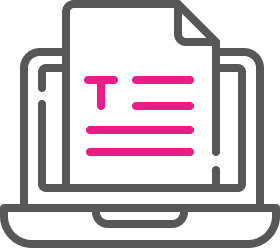ESOPs: Share the Rewards, Secure the Future.
We know the value of startup ESOP and the power of leveraging stocks at right time. Be it an employee, pool of employees, or startup ESOP sale program, we have got it all covered.
We have made liquidating ESOP simple and easy.
Why Choose
Planify
for your Next
Investment
35+
Startups
450+
Employees
200 Cr.+
ESOP Sold
900 Cr.+
ESOP Pool
Sell Now →
The smarter way to liquidate ESOPs
ESOP liquidity
Cap table management
ESOP Management
ROFR Grants
Tax Computation
Buybacks
List your shares, know your true net worth today
Create your Listing
Sell ESOP Journey
Unlock the power of ESOPs : Learn all about ESOPs with our informative videos
Lets Connect
Please provide the following details

+91
0 - 50 Lac
50 Lac - 1 Cr
1 Cr- 5 Cr
5 Cr - 10 Cr
10 Cr - 50 Cr
50 cr - 100 cr
100 cr - 150 cr
500+ Cr
Connect with expert

What is ESOPs & How It Works
‘ESOP, stands for Employee Stock Ownership Plan, is not merely a term; it's a promise of financial transformation. ESOPs allow employees to step beyond their roles and become co-owners of the companies they serve.’
Planify makes liquidating ESOPs simple and easy. Under the ESOP scheme, Planify helps you sell your private company shares to realize your financial goals today. Planify believes that your net worth shouldn’t just be on paper. Planify facilitates liquidating of net worth to unlock your true potential.
Benefits of ESOPs
Be it employees, a pool of employees, or an ESOP sale program, Planify has got it all covered. Planify has made liquidating ESOP simple and easy. We help employees unlock their net worth by liquidating the ESOP of employees, the pool of employees, or the startup ESOP sale program. Our expert team will work with you every step of the way to help you liquidate ESOPs effectively and efficiently.
Planify has rich experience in helping employees liquidate their ESOPs. 450 employees across 35 startups have availed our ESOPs product so far with over 200 Cr. ESOPs being sold and another 900 Cr.+ joining the ESOP pool show the amount of confidence we have been able to generate in the minds & hearts of the employees.
In 2023, we successfully assisted employees of Paytm, ixigo and boAt, two of the leading Indian startups, to liquidate their ESOPs and earn handsome returns.
Frequently Asked Questions
What is Esop?
An ESOP is an employee benefit plan that enables employees to own part or all of the company they work for.
What are the Types of ESOP ?
There are 4 types of ESOPs. Employee Stock Purchase Plan, Employee Stock Option Scheme, Restricted Stock Units, and Stock Appreciation Rights.
How does ESOP work?
ESOP works as an agreement between employer and employees of the company by granting them to exercise their option at a later (future date), which can be cashed or traded
What is the benefit of ESOP?
From an employer’s perspective, ESOPs improve employee retention and saves immediate cash outflow. While from an Employee’s perspective, ESOPs help increase the share of equity in a finance portfolio which has a long-term positive impact.
Is ESOP a good Investment?
ESOPs are a good investment if the underlying company has been able to generate good profits as the employee also gets to reap the benefit, just like the shareholder of the company
Where can I see the ESOP scheme?
ESOP Scheme along with other process manuals are available to be accessed on ESOP Portal under “Company Docs”.
When to sell ESOP shares?
As per the SEBI guidelines, there needs to be a minimum of one year lock-in between the ESOPs and vesting application of the period. Although, ESOPs can be sold in the market after taking prior approval from the company.
How can I know my exercise price?
How to sell ESOP Shares ?
Can you sell shares in an ESOP?
Planify helps you unlock your true net worth by liquidating your ESOP shares. Under the ESOP scheme, Planify helps you sell your private company shares to realize your financial goals today.
How to get a return from ESOP?
Where can I see my Granted Options?
Please check with your company HR/finance team. It is generally available on ESOP portal of the company. It will have complete information of shares granted, vested and available for exercise.
What is a Demat account?
Do I need to have Demat account to exercise my options?
Yes, you should have Demat account to exercise your options. In case of no Demat account you won’t be allowed to exercise your options.
Can I use Demat account of any Family member or Friend to exercise my options?
When can I exercise my vested options?
When will exercise window open?
What is the Current FMV (fair market value) to be considered for tax purposes?
How much Perquisite tax do I need to pay while exercising the options?
[(Current FMV - Exercise Price)* Number of options to be Exercised] *31.2% (30% + 4% Edu Cess).
Eg : If you want 10 Options to be exercised with exercise price being Re 1 each and Current FMV per option is 1000 then the calculation of Tax is [(1000 - 1) X 10 ] X 31.2% i.e [9,990] X 31.2% = INR 3,117 (perquisite tax).
For NRIs, India and overseas tax implications to be evaluated separately, based on the specific facts. Further, requisite income tax filings (such as Form 15CB / 15CA) to be undertaken.
How many transactions should I make towards exercising my options?
Two separate payment transactions are required to be made as mentioned below:
A) Exercise Price
B) Perquisite Tax.
1. Exercise Price Payable : (Number of options * Exercise Price) | (10 X 1) = INR 10
2. Perquisite Tax Payable : INR 3,117
What if my Exercise price is higher than FAIR MARKET VALUE (FMV)?
In case your exercise price is higher than FMV, the tax payable of your ESOP will be NIL, however your exercise price payable will be as per below:
Exercise Price Payable : (Number of options * Exercise Price)
What is the account detail to transfer funds for Exercise Price and Perquisites Tax?
Account details will be provided by company HR when you are proceeding to pay the Exercise Price and Perquisite tax amount
Under which circumstances allotment wont be given to me?
- No allotments will happen if:
Payment (Exercise Price and Perquisite Tax) not received before window closure.
Payment transferred but details of Transaction not updated on the ESOP Portal.
Payment transferred but Demat account not updated on portal OR updated Demat account does not belong to YOU.
Exercise form not signed and uploaded on Portal.
NOTE : In all the above cases Exercising will be considered as incomplete.
What happens to Tax amount and Exercise amount I transferred and no allotments happening due to above reasons?
Tax amount collected will get deposited to the Tax Authority against your PAN, the same can be claimed as refund while filing Tax returns Exercise amount will get refunded back to your account.
What if I miss to exercise my options?
You have to wait till the next exercise window period, which may fall in next quarter
Are there any adjustments made to my ESOP's against Bonus Split?
The decision of Bonus issue is under consideration. In case of any Bonus issue, adjustments will be made with respect to the outstanding options proportionate to the bonus issue during share allotment
How many days does it take for share allotment to reflect into my Demat account?
Maximum 45 days from the date of closing of the exercise window.
Will the shares directly get credited to my Demat account?
Yes, After the successful realization of payments and fulfilment of all the internal procedures (which may take 45 days) the shares will be directly credited to your Demat account.
What if I ONLY select the numbers of shares to be exercised on the Portal and don’t make the payment?
In case you ONLY fill the number of options to exercise and do not make the payments, no shares will get allotted.
Can I make the payment to company account directly through Netbanking by adding a beneficiary?
Yes, you can make an IMPS / NEFT / RTGS directly from your Net banking, however you need to fill the transaction details on the Portal.
Where can I check lapse/expiry date for my vested options not being exercised?
Go to Dashboard Scroll at the bottom to My Summary Report Click on View Detailed report Download report in XLS or PDF.
Can my Cancelled/Lapsed options get reinstated?
No, as per ESOP Scheme lapsed or cancelled options cannot be reinstated in future.
Do I need to transfer the shares first to Planify demat?
Yes. Shares needs to be transferred to Planify demat account. Planify woul d assist in liquidating your shares by finding suitable investors.
Is there any charges levied by Planify?
No. You can share the price at which you want to sell the shares. Planify would also help you in the price discovery. There are no charges which is taken by Planify on the price.
When will I Receive funds from Planify?
As soon shares gets liquidated, representative from Planify would inform you. Payment gets credited within 24 hours of confirmation.
Documents required to be furnished by nominee of deceased individual?
- Any legal heir (not declared as nominee by the employee) intending to transfer ESOP to his/her name should provide below documents:
Death certificate of deceased person.
Succession certificate (to be obtained from the court).
What happens if the nominee of deceased individual is unable to submit the documents before closure of exercise window?
Nominee will be allowed to exercise the options (upon submission of required documents) when the next exercise window gets opened.
Note : The options are subject to lapse if the exercise doesn’t happen within the timeframe mentioned in the scheme.
Whom should I connect for my queries?
For any technical assistance feel free to write to procurement@planify.in
Problems related to ESOPs for the employers and employees?
Problems for Employee
ESOPs does not allow voting rights for most of the companies as promoter does. Liquidity risk - An employee invest in the company just like its promoter but if the company goes bankrupt then it will be hard to liquidate ESOP.
Problem for Employer
Giving ESOPs to the employee increase the complexity of the capital structure of the company, which also makes it difficult for the company to raise additional capital in the form of debt or equity as the employers also have an obligation towards the employees.
Effect on ESOPs when the company is listed?
The ESOP holder in the company gets the chance to exercise its option at market price, which also helps in immediate liquidity once the company gets listed.
Why sell your shares to planify?
Exercising and selling the shares is profitable. It helps avoid the burden of extra income tax to be paid if the options are exercised at later dates over the vesting period.
How can we reach out to you for raising funds?
You can mail at fundraising@planify.in your business plan along with your contact details.








